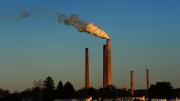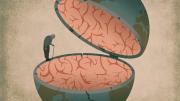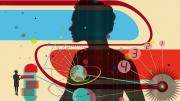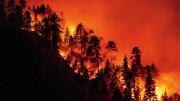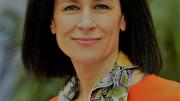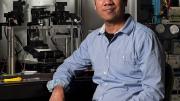Science & Technology
Dementias Linked to Air Pollution
Hospitalizations for neurological disease rise with increases in fine particle pollution.
by Jonathan Shaw
Daniel Schrag and David Keith: Can Solar Geoengineering Help Fight Climate Change?
Some changes cannot be stopped, but reflecting sunlight back into space could slow their pace.
Lessons in Dementia’s Decline?
Dementia is decreasing in Europe and North America. Why not the rest of the world?
by Matteo Wong
Detecting Breast Cancer Everywhere
A portable, simple testing technology promises accurate breast-cancer diagnosis and treatment in low- and middle-income countries.
by Jordan Smith
Controlling the Global Thermostat
Coming to terms with climate change’s relentless, long-term fallout
by Jonathan Shaw
Jennifer A. Doudna, Ph.D. ’89, and Emmanuelle Charpentier Share Chemistry Nobel
Recognized for developing genome-editing technique
by John S. Rosenberg
Gravid and COVID
The challenges of researching the pandemic’s effects on pregnant women
by Matteo Wong
“Hands On” with Fragile Glass Sea Creatures
Complementary imaging techniques combine to create 3-D models that virtual visitors can examine from any angle.
by Matteo Wong
Venkatesh Murthy
A brief look at what animals’ sense of smell reveals about the brain
by Lydialyle Gibson
Active Grandparenting, Costly Repair
A biological anthropologist explains why and how exercise works to combat senescence.
by Daniel E. Lieberman

